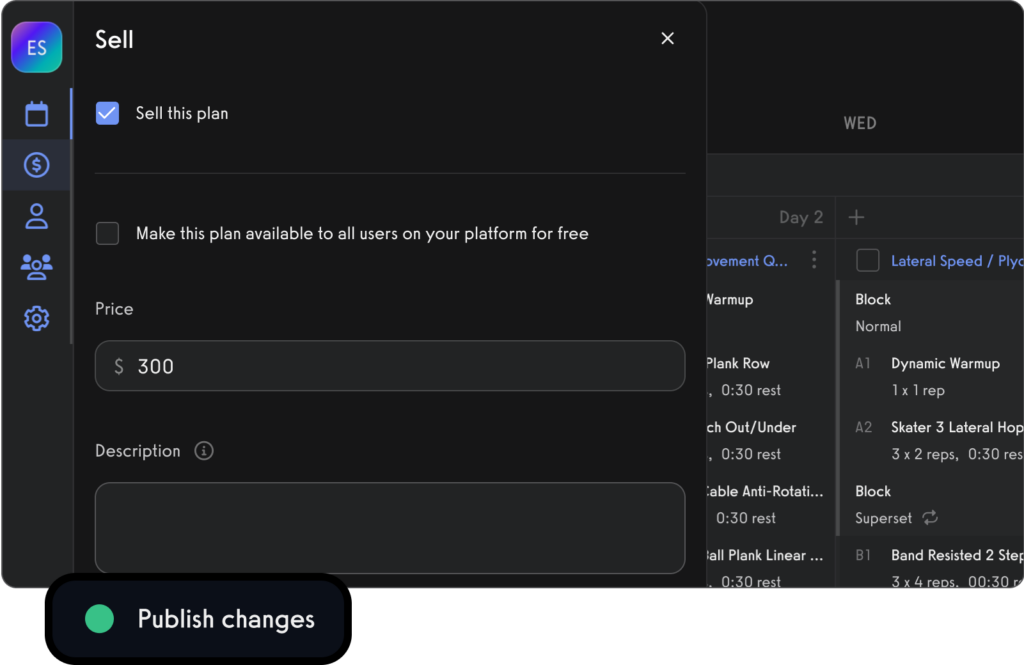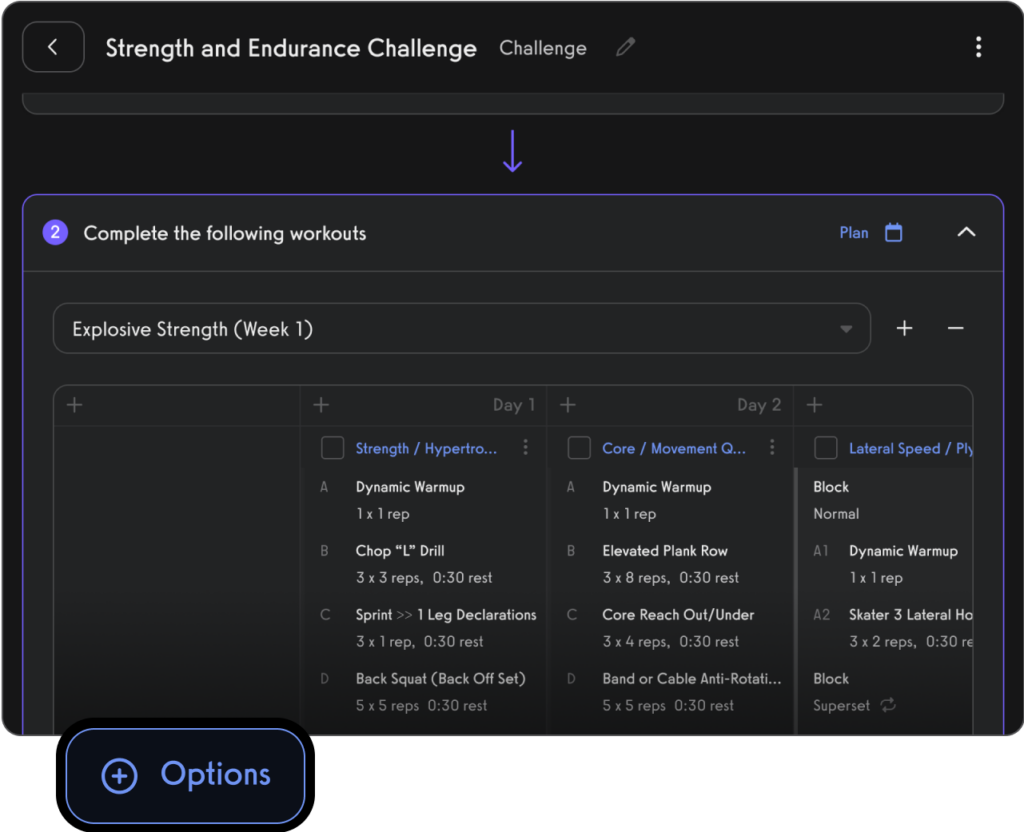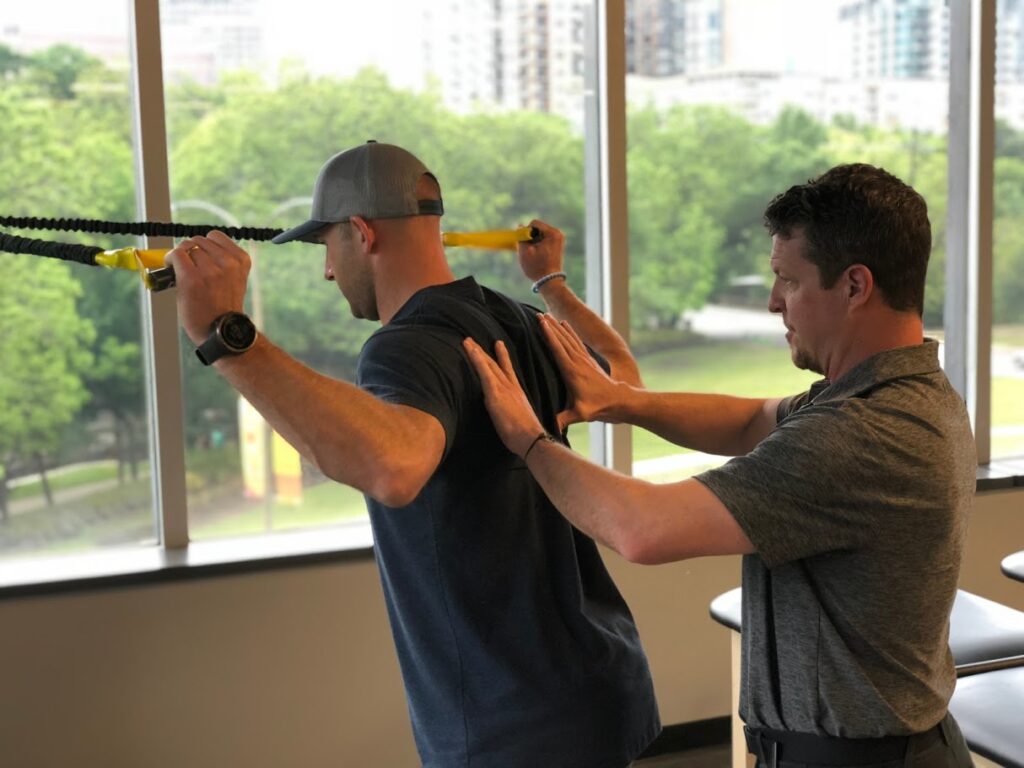NSCA Tactical Strength and Conditioning-Facilitator (TSAC-F) Certification Review (2025)
Read this NSCA Tactical Strength and Conditioning-Facilitator (TSAC-F) Certification Review to decide if the NSCA TSAC-F Certification is worth it and what the best personal training certification is for you.

In recent years, the demand for professionals who specialize in tactical strength and conditioning has been on the rise. Athletes in military, law enforcement, and other high-performance tactical roles require specialized training programs to optimize their physical readiness and reduce the risk of injuries. The NSCA Tactical Strength and Conditioning-Facilitator (TSAC-F) Certification is a valuable credential for individuals looking to enter this field or enhance their career prospects. In this comprehensive NSCA TSAC Certification review, we will explore the various aspects of the TSAC-F Certification, including its importance, prerequisites, exam format, study resources, key topics covered, and more.
Get an in-depth review of the NSCA Tactical Strength and Conditioning-Facilitator (TSAC-F) Certification and find the best tactical fitness certification online. Whether you want to learn how to become a personal trainer, or learn how to become a fitness influencer, or learn how to open a gym, or learn how to start a fitness business, or anything in between, use the Exercise.com platform to accomplish your fitness business goals.

You can start an online personal training business, make a fitness app, learn how to make money selling workout plans online, put in-person personal training marketing ideas into action, use personal training income ideas to find personal trainer career options that will put you on track for the highest paying fitness jobs, and many other ways to make money from fitness doing what you love.
With the Exercise.com platform you have the best online fitness coaching software and the best software for fitness influencers all in one! (Not to mention the best gym software and the best personal training software).
Create workout plans.

Manage clients.


Run online fitness challenges.

Create and sell fitness memberships, products, and digital offers.

Manage, message, and market to your online personal training clients and leads.

All from your very own custom branded fitness apps.


1. Introduction to NSCA Tactical Strength and Conditioning-Facilitator (TSAC-F)
Before delving into the details, let’s first understand what the NSCA TSAC-F Certification is all about. Developed by the National Strength and Conditioning Association (NSCA), this certification is specifically designed for professionals who work with tactical athletes. It focuses on enhancing the physical capabilities of these individuals through science-based training and conditioning programs.
Tactical athletes, such as military personnel and law enforcement officers, face unique physical demands in their line of work. They require a high level of strength, endurance, agility, and mental resilience to perform their duties effectively. The NSCA TSAC-F Certification equips professionals with the knowledge and skills to design and implement training programs that address these specific needs.
What is the NSCA TSAC-F Certification?
The TSAC-F Certification is a credential that validates a professional’s knowledge and expertise in the field of tactical strength and conditioning. It equips candidates with the necessary skills to design and implement effective training programs for tactical athletes. By earning this certification, individuals can demonstrate their commitment to advancing the performance and overall well-being of those in military, law enforcement, and similar roles.
Professionals who hold the TSAC-F Certification are recognized as experts in their field. They have a deep understanding of the unique challenges faced by tactical athletes and possess the tools to help them overcome these challenges. With this certification, professionals can make a significant impact on the physical preparedness and performance of tactical athletes, ultimately contributing to the safety and success of their missions.
TSAC-F Certification or Another Specialization?
Choosing the NSCA Tactical Strength and Conditioning-Facilitator (TSAC-F) certification signifies a commitment to specialized training for tactical populations, such as military, law enforcement, and emergency responders.
What is the TSAC-F Certification?
The TSAC-F Certification is tailored for professionals who aim to apply strength and conditioning principles to enhance the performance, readiness, and injury resilience of tactical personnel.
TSAC-F General Information
The TSAC-F program encompasses a broad spectrum of physical conditioning techniques, operational readiness strategies, and injury prevention methods specifically designed for tactical athletes.
TSAC-F Credibility and Reputation
Endorsed by the National Strength and Conditioning Association (NSCA), the TSAC-F certification is recognized for its rigorous standards and comprehensive approach to tactical strength and conditioning.
Is the NSCA TSAC-F Worth It?
For those dedicated to supporting the physical demands of tactical professionals, the TSAC-F certification offers an unparalleled opportunity to specialize in a niche yet crucial area of fitness and performance.
TSAC-F vs Other Top Personal Trainer Certifications
Compared to more general certifications, the TSAC-F stands out for its targeted focus on tactical populations, offering unique insights into the specific needs and challenges faced by these groups.
Exclusive PTP CPT Offers
Integrating Exercise.com’s best personal training software with TSAC-F certification empowers trainers to manage and scale their training programs effectively, ensuring tactical athletes receive customized, data-driven training plans.
Who is the TSAC-F Certification Meant For?
The TSAC-F certification is ideal for strength and conditioning coaches, personal trainers, and military and law enforcement fitness professionals who are committed to elevating the physical capabilities of tactical personnel.
TSAC-F Cost
Investment in the TSAC-F certification includes examination fees, preparatory materials, and potential continuing education courses focused on tactical strength and conditioning. The cost of the NSCA TSAC-F Certification varies based on NSCA membership status, registration fees, and any additional study materials or workshops chosen. Typically, the exam fee ranges from approximately $340 to $475 for NSCA members, with non-members paying a higher fee. Additional costs for study materials and preparation courses may apply.
Specialized Study Materials
NSCA provides a range of TSAC-F exam preparation resources, including textbooks, online content, and practical workshops, all aimed at equipping candidates with the expertise needed for tactical fitness training.
TSAC-F Certification Content Coverage
The TSAC-F certification covers a wide array of subjects, from operational readiness and physical conditioning to injury prevention and recovery strategies, ensuring a holistic approach to tactical fitness.
Operational Readiness Training
- Strategies for enhancing the physical readiness and performance of tactical personnel through specialized strength and conditioning programs.
Injury Prevention Techniques
- Comprehensive approaches to reducing the risk of injury among tactical populations, incorporating the latest research and best practices in the field.
TSAC-F Exam Prep and Study Materials
NSCA offers an extensive suite of exam preparation tools, including study guides, practice tests, and review courses, all designed to prepare candidates for the TSAC-F exam confidently.
TSAC-F Certification Requirements
To sit for the TSAC-F exam, candidates must meet specific eligibility criteria, including a background in strength and conditioning and CPR/AED certification, ensuring a high standard of professionalism.
TSAC-F Salary
Certified TSAC-F professionals can command competitive salaries, given their specialized skills in tactical strength and conditioning, with opportunities in military, law enforcement, and private sector roles.
Taking the Final TSAC-F Exam
The TSAC-F exam assesses a candidate’s knowledge and application of tactical strength and conditioning principles, ensuring they are equipped to support the unique needs of tactical populations effectively.
TSAC-F Continuing Education and Recertification
Maintaining the TSAC-F certification requires ongoing education in tactical strength and conditioning, with options for advanced courses, seminars, and specialized certifications to keep skills current.
Other NSCA Offerings
In addition to the TSAC-F certification, NSCA provides a range of credentials and educational opportunities for fitness professionals looking to further specialize in strength and conditioning.
TSAC-F Overall Rating
Pros
- Specialized focus on tactical strength and conditioning
- Recognized by NSCA, ensuring credibility and professional recognition
- Equips trainers to meet the unique physical demands of tactical populations
Cons
- May require additional investment in specialized tactical training education
- More niche focus, which might not appeal to trainers seeking a broader certification
The NSCA Tactical Strength and Conditioning-Facilitator (TSAC-F) certification is a standout choice for fitness professionals dedicated to the specialized field of tactical strength and conditioning. Leveraging the best PT software and the best gym software alongside TSAC-F certification enables trainers to deliver tailored, effective training programs that address the specific needs of tactical personnel, ultimately contributing to their operational readiness and injury resilience. This certification not only advances a trainer’s knowledge and skills in tactical fitness but also significantly enhances their ability to make a meaningful impact in the lives of those who serve in tactical roles.
Importance and Benefits of the TSAC-F Certification
The TSAC-F Certification holds immense importance in the field of tactical strength and conditioning for several reasons. First and foremost, it ensures that professionals possess the necessary knowledge and skills to effectively train tactical athletes. This certification covers a wide range of topics, including tactical athlete assessment and testing protocols, program design and periodization, nutrition and supplementation, injury prevention and rehabilitation strategies, tactical strength and conditioning principles, and career opportunities within the field.
By completing the TSAC-F Certification, professionals demonstrate their commitment to ongoing professional development and staying up-to-date with the latest advancements in the field. This dedication to continuous learning enhances their credibility within the industry, increasing their chances of securing employment opportunities or advancing in their current positions.
Moreover, the TSAC-F Certification provides a comprehensive understanding of injury prevention and rehabilitation strategies specific to tactical athletes. The specialized knowledge gained through this certification enables professionals to play a vital role in reducing the risk of injuries and promoting the long-term health and performance of tactical athletes.
Prerequisites for TSAC-F Certification
Prior to pursuing the TSAC-F Certification, candidates must meet certain prerequisites. These prerequisites ensure that candidates have a solid foundation of knowledge and experience essential for success in the field. The NSCA requires candidates to have a current CPR/AED certification, be at least 18 years of age, and possess a high school diploma or equivalent.
These prerequisites ensure that candidates have a basic understanding of emergency response procedures and the necessary educational background to comprehend the complex concepts covered in the TSAC-F Certification.
Educational and Experience Requirements
In addition to the prerequisites, candidates must fulfill certain educational and experience requirements to be eligible for the TSAC-F Certification. The NSCA requires candidates to have either a bachelor’s degree in a related field or currently be enrolled in the final semester of their bachelor’s degree program. Additionally, candidates must have at least 375 hours of practical experience working with tactical athletes.
The educational requirement ensures that candidates have a comprehensive understanding of the scientific principles and theories that underpin tactical strength and conditioning. It provides them with a solid foundation to build upon as they progress in their careers.
The practical experience requirement is equally important, as it allows candidates to apply their theoretical knowledge in real-world settings. It gives them the opportunity to work directly with tactical athletes, understand their unique needs, and develop practical skills in program design, implementation, and coaching.
Exam Format and Passing Criteria
Understanding the exam format and passing criteria is crucial for successful completion of the TSAC-F Certification. The exam consists of a multiple-choice section and a practical section. The multiple-choice section tests candidates’ knowledge of core concepts within the field of tactical strength and conditioning. The practical section assesses candidates’ ability to design and implement training programs specifically tailored to the needs of tactical athletes.
The passing criteria for the TSAC-F Certification vary based on the overall performance of the candidates. The NSCA determines a passing standard using a standardized procedure that ensures fairness for all candidates. This ensures that individuals who earn the certification possess the necessary knowledge and practical skills to excel in their roles as tactical strength and conditioning professionals.
Recommended Study Resources
Preparing for the TSAC-F Certification requires a comprehensive study plan and access to reliable study resources. The NSCA offers several recommended resources to help candidates succeed in their exam preparation. These resources include textbooks, online courses, study guides, and practice exams. Utilizing these resources can greatly enhance candidates’ understanding of the key concepts and increase their chances of passing the exam.
It is important for candidates to allocate sufficient time for studying and to create a structured study plan that covers all the relevant topics. Engaging with the recommended study resources will not only deepen their knowledge but also provide them with valuable insights and practical examples that they can apply in their future work with tactical athletes.
Key Topics Covered in the Exam
The TSAC-F Certification exam covers a wide range of topics relevant to tactical strength and conditioning. These topics include tactical athlete assessment and testing protocols, program design and periodization, nutrition and supplementation, injury prevention and rehabilitation strategies, tactical strength and conditioning principles, and career opportunities within the field. A deep understanding of these topics is essential for success in the TSAC-F Certification exam.
Professionals who hold the TSAC-F Certification are well-versed in these key topics and can effectively analyze the needs of tactical athletes, develop individualized training programs, and provide guidance on nutrition and injury prevention strategies.
Sample Questions and Practice Exams
To familiarize candidates with the exam format and level of difficulty, the NSCA provides sample questions and practice exams. These resources allow candidates to assess their knowledge and identify areas that require further study. Engaging in regular practice with sample questions and practice exams can significantly improve candidates’ confidence and readiness for the actual exam.
It is recommended that candidates allocate dedicated time for practicing with sample questions and taking practice exams. This will not only help them become familiar with the exam format but also enable them to gauge their progress and identify any gaps in their understanding. Regular practice will strengthen their problem-solving skills and increase their chances of performing well on the actual TSAC-F Certification exam.
2. Tactical Strength and Conditioning Principles
Tactical strength and conditioning principles form the foundation of the TSAC-F Certification. These principles are rooted in scientific evidence and focus on optimizing the physical performance of tactical athletes. By understanding and applying these principles, professionals can develop training programs that address the unique needs and demands of tactical athletes.
Specific topics covered under tactical strength and conditioning principles include energy system development, periodization, exercise selection, overload and progression, and recovery and regeneration strategies. Mastery of these principles is essential for designing effective training programs that enhance the performance and minimize the risk of injuries for tactical athletes.
3. Injury Prevention and Rehabilitation Strategies for Tactical Athletes
Tactical athletes are exposed to unique risks and challenges that can contribute to injuries. Therefore, understanding injury prevention and rehabilitation is paramount for professionals in the field of tactical strength and conditioning. The TSAC-F Certification provides candidates with the knowledge and skills necessary to develop injury prevention strategies, identify risk factors, and implement appropriate rehabilitation protocols.
Some key topics covered in this section of the TSAC-F Certification include identification and treatment of common injuries among tactical athletes, designing injury prevention programs, implementing corrective exercises, and utilizing modalities for injury management. With this knowledge, professionals can play a proactive role in minimizing the occurrence and severity of injuries among tactical athletes.
4. Program Design and Periodization for Tactical Athletes
Effective program design and periodization are essential for maximizing the performance and long-term success of tactical athletes. In this section of the TSAC-F Certification, candidates learn how to develop periodized training programs that address the specific needs of tactical athletes throughout their training cycles.
Topics covered in this section include needs analysis, setting training goals, selecting appropriate exercises and equipment, manipulating training variables, structuring training phases, and monitoring progress. By mastering program design and periodization strategies, professionals can optimize the physical readiness of tactical athletes and improve their overall performance.
5. Nutrition and Supplementation for Optimal Performance
Nutrition plays a critical role in the performance, recovery, and overall well-being of tactical athletes. Professionals in the field of tactical strength and conditioning must have a solid understanding of proper nutrition and supplementation to help athletes achieve their optimal performance levels.
The TSAC-F Certification covers topics such as macronutrient and micronutrient requirements, hydration strategies, pre- and post-workout nutrition, dietary supplement regulation and safety, and meal planning for tactical athletes. Armed with this knowledge, professionals can guide athletes in making informed decisions regarding their dietary choices and supplement use, ultimately enhancing their performance and overall health.
6. Tactical Athlete Assessment and Testing Protocols
Assessing the physical capabilities and monitoring the progress of tactical athletes is crucial for designing effective training programs. The TSAC-F Certification equips professionals with the necessary assessment and testing protocols to evaluate the functional fitness and readiness of tactical athletes.
Candidates learn about various assessment techniques, such as movement screening, strength and power testing, cardiovascular fitness assessment, and flexibility assessment. With this knowledge, professionals can accurately assess the strengths and weaknesses of tactical athletes and tailor their training programs accordingly.
7. Career Opportunities for TSAC-F Certified Professionals
Earning the TSAC-F Certification opens up a world of career opportunities for professionals in the field of tactical strength and conditioning. Tactical athletes are increasingly recognizing the importance of specialized training programs, creating a demand for qualified professionals who can meet their unique needs.
TSAC-F certified professionals can find employment opportunities in various sectors, including the military, law enforcement agencies, federal agencies, fire departments, and private training facilities. With the increasing demand for tactical strength and conditioning expertise, certified professionals can enjoy stable and rewarding career paths.
8. Enhanced Credibility and Marketability
The TSAC-F Certification not only provides professionals with the necessary skills and knowledge but also enhances their credibility. By earning this credential, professionals demonstrate their commitment to the field of tactical strength and conditioning and their dedication to staying up-to-date with the latest research and best practices.
Moreover, the TSAC-F Certification increases professionals’ marketability within the industry. Employers value this certification as it ensures that candidates possess the necessary qualifications to meet the unique needs of tactical athletes. Certified professionals are often considered more credible and competent, giving them a competitive edge in the job market.
9. Networking and Professional Development Opportunities
The NSCA TSAC-F Certification opens doors to a vast network of professionals in the field of tactical strength and conditioning. This network offers opportunities for collaboration, knowledge sharing, and ongoing professional development.
By connecting with other TSAC-F certified professionals, individuals can expand their professional network, learn from experienced practitioners, and stay informed about advancements in the field. Networking and professional development are essential for career growth and staying at the forefront of the industry.
10. Real-Life Experiences and Achievements
Pursuing the TSAC-F Certification allows professionals to gain real-life experiences and achievements in the field of tactical strength and conditioning. Through hands-on practical experience, professionals have the opportunity to apply their knowledge and skills in real-world scenarios.
These real-life experiences not only deepen their understanding of tactical strength and conditioning principles but also strengthen their ability to address the unique challenges faced by tactical athletes. By sharing their achievements, professionals can inspire others to pursue similar paths and make a positive impact in the field.
11. Impact of TSAC-F Certification on Career Growth
The TSAC-F Certification can have a significant impact on professionals’ career growth and advancement opportunities. As the demand for specialized tactical strength and conditioning training continues to grow, certified professionals are better positioned to secure employment in prestigious organizations and take on leadership roles within their organizations.
Furthermore, professionals who hold the TSAC-F Certification often witness an increase in their salary potential, as employers recognize the value and expertise they bring to the table. The TSAC-F Certification serves as a testament to their dedication and proficiency in the field, leading to accelerated career growth and development.
12. Continuing Education Requirements
The field of tactical strength and conditioning is constantly evolving, with new research and best practices emerging regularly. To maintain their knowledge and skills, TSAC-F certified professionals are required to fulfill continuing education requirements set by the NSCA.
These requirements ensure that certified professionals stay up-to-date with the latest advancements in the field and continue to provide high-quality services to their clients. By fulfilling continuing education requirements, professionals can further enhance their expertise, credibility, and overall effectiveness in the field.
13. Recertification Process and Timeline
To maintain the TSAC-F Certification, professionals need to go through the recertification process. The recertification process helps ensure that certified professionals maintain the necessary qualifications and stay current in the field.
The NSCA provides a clear recertification timeline and guidelines to assist professionals in the process. By following the recertification process and submitting the required documentation within the specified timeframe, professionals can maintain their TSAC-F Certification and continue to enjoy its benefits.
Final Thoughts on NSCA TSAC-F Certification
The NSCA TSAC-F Certification offers a unique opportunity for professionals to specialize in tactical strength and conditioning. By earning this credential, professionals can demonstrate their expertise and commitment to enhancing the performance and overall well-being of tactical athletes.
From the comprehensive exam to the extensive range of topics covered, the TSAC-F Certification equips professionals with the knowledge, practical skills, and credibility to stand out in the field. With the increasing demand for specialized training programs, TSAC-F certified professionals are well-positioned to embark on a rewarding career journey.
Steps to Get Started with TSAC-F Certification Journey
If you are interested in pursuing the TSAC-F Certification, here are the steps to get started:
- Review the prerequisites to ensure you meet the eligibility criteria.
- Gain practical experience working with tactical athletes.
- Obtain a current CPR/AED certification if you don’t already have one.
- Consider enrolling in a relevant bachelor’s degree program if you don’t already have one.
- Utilize the recommended study resources provided by NSCA to enhance your knowledge and preparation.
- Allocate sufficient time for exam preparation and practice with sample questions and practice exams.
- Register for the TSAC-F Certification exam.
- Take the exam and await the results.
- If successful, celebrate your achievement and consider the next steps for your career growth.
- Maintain your TSAC-F Certification through the recertification process and continuing education.
Embarking on the TSAC-F Certification journey can be an exciting and fulfilling experience. It provides professionals with the necessary tools, knowledge, and opportunities to make a positive impact in the field of tactical strength and conditioning. By earning this prestigious certification, professionals can shape the future of tactical performance and help athletes achieve their full potential.

Is the NSCA Tactical Strength and Conditioning-Facilitator (TSAC-F) Certification worth it?
The NSCA (National Strength and Conditioning Association) Tactical Strength and Conditioning-Facilitator (TSAC-F) Certification is highly valuable for fitness professionals who specialize in preparing tactical personnel, such as military, law enforcement, fire and rescue, and other emergency services, for the physical demands of their jobs. The certification is specifically designed to enhance the performance, readiness, and longevity of tactical athletes, making it a worthwhile investment for those committed to supporting the fitness and operational effectiveness of this unique population.
How difficult is the NSCA TSAC-F Certification exam?
The NSCA TSAC-F Certification exam is considered challenging due to its specialized focus on tactical strength and conditioning. The exam covers a broad range of topics, including physical conditioning standards, program design, and the unique needs of tactical populations. A solid foundation in strength and conditioning principles, along with thorough preparation using NSCA’s study materials, is essential for success on the exam.
How credible is the NSCA’s TSAC-F Certification?
The NSCA’s TSAC-F Certification is highly credible within the fitness industry, particularly in the niche of tactical strength and conditioning. The NSCA is a respected authority in strength and conditioning, and its certifications are recognized for their scientific rigor and relevance to professional practice. The TSAC-F certification underscores the NSCA’s commitment to supporting the fitness and operational readiness of tactical personnel, making it a respected credential in the field.
How many people pass the NSCA TSAC-F Certification exam on the first try?
Specific pass rate statistics for the NSCA TSAC-F Certification exam on the first attempt are not publicly disclosed by the NSCA. However, the NSCA provides comprehensive educational resources and support to help candidates prepare for the exam, which can aid in achieving a passing score on the first try.
What is the pass rate of the NSCA TSAC-F Certification?
The exact pass rate for the NSCA TSAC-F Certification exam is not published by the NSCA. The certification program is designed to ensure that certified professionals meet the NSCA’s high standards for knowledge and competency in tactical strength and conditioning, highlighting the importance of thorough study and preparation.
How does the NSCA’s TSAC-F Certification compare to other tactical fitness certifications?
The NSCA’s TSAC-F Certification stands out for its scientific foundation, comprehensive approach to tactical fitness, and the credibility of the NSCA as a leading organization in strength and conditioning. Compared to other tactical fitness certifications, the TSAC-F may offer a more in-depth exploration of the physiological, biomechanical, and psychological aspects of training tactical populations, backed by the latest research and best practices in the field.
Is the NSCA TSAC-F Certification test open book?
The NSCA TSAC-F Certification exam is not open book. It is a proctored exam that evaluates the candidate’s knowledge and application of tactical strength and conditioning principles without the use of reference materials or external aids.
How many times can you fail the NSCA TSAC-F Certification exam?
The NSCA allows candidates to retake the TSAC-F Certification exam if they do not pass, but a retake fee applies. The specific retake policy, including any limits on the number of attempts or required waiting periods between attempts, should be confirmed directly with the NSCA.
What can I do with an NSCA TSAC-F Certification?
With an NSCA TSAC-F Certification, you can work with tactical populations, including military units, law enforcement agencies, fire and rescue departments, and other emergency services, to enhance their physical readiness and performance. The certification equips you to design and implement strength and conditioning programs tailored to the specific needs and demands of tactical personnel, contributing to their safety, effectiveness, and career longevity.
How expensive is the NSCA TSAC-F Certification?
The cost of the NSCA TSAC-F Certification varies based on NSCA membership status, registration fees, and any additional study materials or workshops chosen. Typically, the exam fee ranges from approximately $340 to $475 for NSCA members, with non-members paying a higher fee. Additional costs for study materials and preparation courses may apply.
What happens if you don’t pay NSCA for the TSAC-F Certification?
Non-payment for the NSCA TSAC-F Certification could result in the inability to access study materials, schedule the exam, or receive the certification. It’s crucial to meet all financial obligations to the NSCA to complete the certification process successfully.
How long is the NSCA TSAC-F Certification good for?
The NSCA TSAC-F Certification is valid for three years. Certified individuals must earn a specific number of Continuing Education Units (CEUs) and pay a recertification fee before the end of each three-year cycle to maintain their certification and stay current with the latest practices in tactical strength and conditioning.
How can I learn more about tactical strength and conditioning?
To learn more about tactical strength and conditioning, consider pursuing specialized education like the NSCA TSAC-F Certification, attending workshops and conferences focused on tactical fitness, engaging in continuing education opportunities related to strength and conditioning for tactical populations, and staying informed about the latest research and developments in the field.
How can I integrate tactical strength and conditioning principles into my practice?
Integrating tactical strength and conditioning principles into your practice involves understanding the physical and operational demands of tactical professions, conducting comprehensive assessments to determine the specific needs of tactical personnel, designing evidence-based training programs that address these needs, and continuously evaluating and adjusting the programs based on performance outcomes and feedback.
How can Exercise.com help me run a successful tactical strength and conditioning-focused business?
Exercise.com can help run a successful tactical strength and conditioning-focused business by providing comprehensive business management software tailored for fitness professionals. The platform includes customizable workout plan creation, client and class management, online coaching capabilities, progress tracking, and business automation tools, enabling you to efficiently manage your business and deliver high-quality, specialized strength and conditioning services to tactical personnel.












